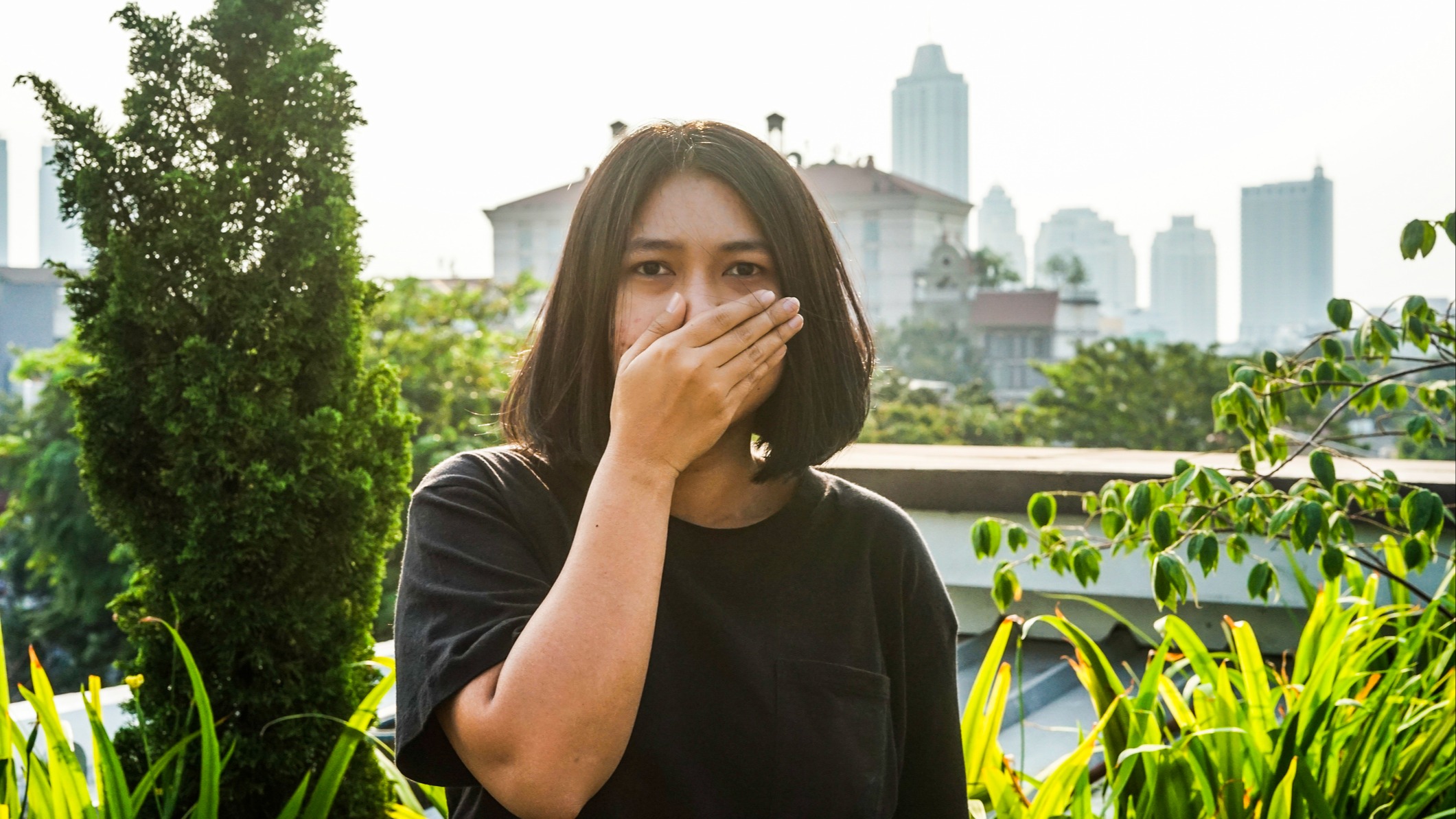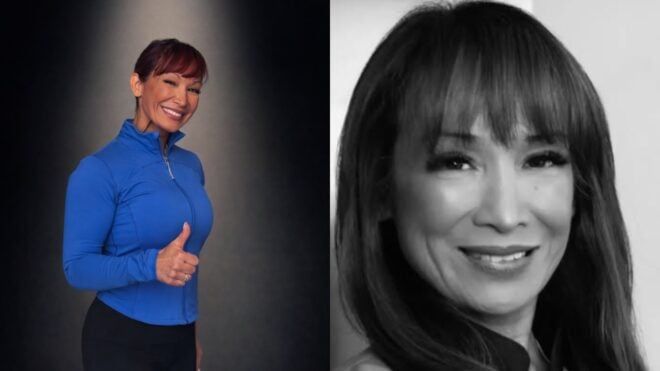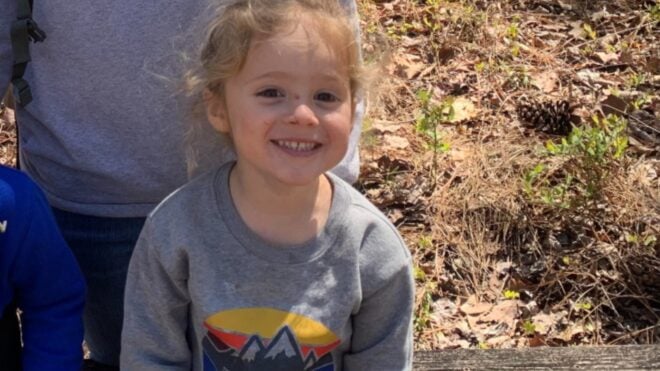
Younger generations are known for being "chronically online" — unlike older generations, they've grown up with social media, making many believe that younger people are comfortable with sharing photos and information online. So why are some teens covering their noses in photos? Some parents have worried that it could be due to bullying, while others have wondered if their teens are just trying to sabotage family photos.
According to some, it's not either of those things — not exactly, anyway. One mom, Michelle Harris, told The Sun's Fabulous Magazine that she sees her 13-year-old and his friends cover their noses in photos regularly.
The mom was initially concerned about her teen, and she understands why parents might be worried about the trend. At a certain point, she just had to ask her kid why he was covering his nose in pictures.
"After several attempts to snatch the perfect Christmas family photo, I turned to my teen and finally asked him why," she told Fabulous.
She decided to be pretty direct with her teen, wanting to get to the bottom of it.
More from LittleThings: Mom Doesn't Think Her Daughter Should Be Discussing Marriage When She Still Lives At Home
“Is everything OK, why won’t you show up in family photos for the handsome boy that you are anymore?" she asked her teen. "Are you being bullied?"
His response surprised her.
"No, but I will be if you post pictures of me online without my consent!" he told her, laughing.
She explained to the publication that her son told her the "nose cover" is a form of protection.
"The teens have group chats of their own and they're very active with school peers on the look out and competing to find and share the most embarrassing family photos of each other so they can ‘roast’ them in the group," she told Fabulous.
Basically, if their faces are covered in family photos, it will be much harder for their peers to find funny or humiliating photos of them.
Does this mean that every teen who covers their nose is just trying to avoid being "roasted" by their friend group?
Nope. While it makes sense that this teen didn't want his "embarrassing" family photos showing up on social media, it doesn't mean that every teen is covering their nose for the same reason. Of course, people can be really mean online, and some people — teens and adults alike — find ways to hide the features they're insecure about.
The mom empathized with her son's concerns, realizing that when she updates her social media accounts with photos of her kids, she is not necessarily thinking about how it might impact them.
"A concerned mum at the school gate shared the sentiment saying: 'In our day photos got stuck in an album and you had control over who saw them,'" she told Fabulous. "But nowadays even just innocently changing your display picture on Whatsapp with your child in it could end up being circulated in children's digital spaces and be used against them."
Parenting expert Holly Zoccolan told Fabulous that parents should consider whether or not their kids want pictures shared online, as well as how the pictures might affect them.
After all, it's normal for teenagers to have an "awkward phase," or a time period in which, as parenting expert Amanda Jenner put it, "teenagers … [are] not embracing their appearance, i.e. could be spots, braces, or they just have a time in their lives where they have no self-confidence."
"Using covers is the only way they can remove themselves without actually upsetting their parents by refusing to be in the photo. We as parents want and insist on capturing the moment but to a teenager this is a big deal," Amanda explained to Fabulous.
She added that photos shared by family members might be ones that have not been "perfected," which "can really affect teenagers" depending on how their peers react to it.
Both Amanda and Holly reminded parents that though it might seem sad if your teen doesn't want to be in a family photo or wants to cover their nose, it's not necessarily a bad sign.
Amanda called it "a normal part of growing up, where seeking independence and establishing personal boundaries are key developmental milestones."
Holly also noted that it shows "their growing desire for privacy and control over their personal image."




